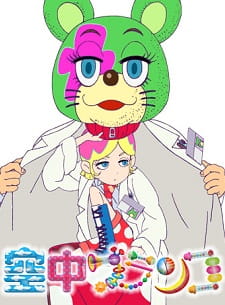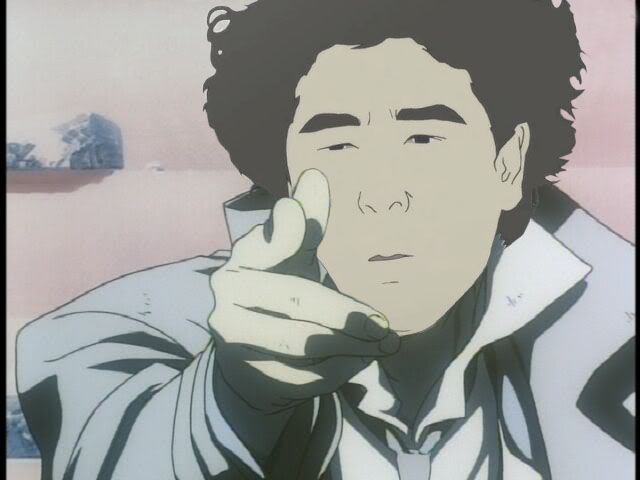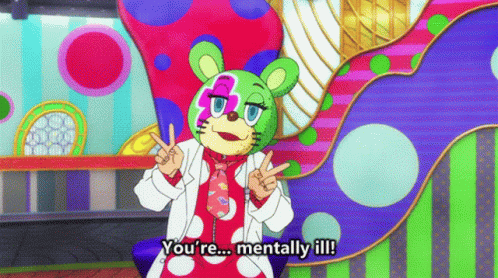Kuchu Buranko (Trapeze)


I first heard about Trapeze in 2013, when Aku no Hana came out. Everyone on /a/ was going crazy about the artstyle which used the rotoscoping method - when some anons pointed out how rotoscoping isn't a new thing (in anime), and Trapeze did it just a few years prior. From the screenshots posted, it didn't really catch my eye, and I was still high on the meme train that was Aku No Hana weekly threads. Watching something that was also rotoscoped was certainly not an option at this point. Ever since then I brushed shoulders with the anime, so to speak. A mention there, a screenshot there. I didn't even know Kuchu Buranko and Trapeze were the same thing lmao. Finally, 9 years after I decided to give it a watch.
This time, no spoilers. Trapeze is a psychological seinen that deals with mental illnesses in an episodical format. Each episode a new patient is introduced, with their own symptoms and problems. In some episdoes the patients manage to overcome their issues, in some they learn to deal with their illnesses. Despite the serious subject matter, Trapeze has a comical tone, and that's mostly because of the main character, Dr. Irabu. At the beginning of each episode his nurse administers a shot to the patient (which Irabu seems to have a fetish for) and the patients begin to halucinate Irabu to be with them the whole time after that. The diagnosis has been established and then throughout the episode we witness the treatment, which may or may not be conventional but it always comes with some comedy. Every episode happens in roughly the same timespan, from the 16th to the 25th of December, meaning Irabu has been treating all of these patients simoultenously. During almost each episode we have the patients interacting with each other or just sharing the same space. The plot is thus very intertwined and patients actions from one episode will impact the lives of other patients. It's pretty fun to witness. We're also reminded by a real doctor showing up on screen here and there, that Irabu's methods aren't really an everyday thing, lmao.
I truly liked all of the episodes, but I especially loved the first half of the 9th episode, where the patient suffers from npd (a narcissist). Gave me a good laugh to see how Irabu treated him to bring him down to Earth. It's just nice to see an anime focus on adults a bit, even if it's all just men. The 10th episode probably stands out the most, as the little plot twist is really satisfying and the story around it is fleshed out well.

As mentioned earlier, this anime uses rotoscoping but unlike Aku no Hana, it's not an all time thing. Instead it's mostly used for zoomed in facial expressions, or mostly on the nurse. Next is the world, which uses a psychedelic color palette and everything has weird circular textures slapped on. It's very similar to Mononoke, most likely because both of these anime share the same director (Kenji Nakamura). There's a lot of neat little things that stand out animation wise in this anime.
Finally, the overarching message of this anime is "nobody is perfect". I know some people struggling with severe mental illness hate that concept and equate it with the "everybody is a little mentally ill" and consider it invalidating, but frankly, the way our current society and culture sees mental illness is vastly.. well.. culture bound. In a country different from your own, some mental illnesses could be treated like passing colds. Actually they are somewhere but for the love of god I can't find it in my medical anthro notes so I'll leave it as a hypothetical... Anyway, read about culture-bound syndromes if that topic interests you! But it is a fact that 1 in 4 people will be affected by a mental or neurological issue at some point in their lives (according to WHO, at least), and I think that living with that fact helps relieve some of the stigma, especially in societies where it is important to remain as "normal" as possible. There is no such thing as normal, and most people will struggle to perform within that framework.
